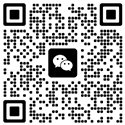银行汇率外汇牌价表查询(银行汇率外汇牌价表查询系统)
Understanding Exchange Rates: A Comprehensive Guide
Exchange rates play a pivotal role in the global economy, influencing everything from international trade to personal travel plans. Understanding how exchange rates work and how to interpret them is essential for anyone looking to navigate the complexities of the foreign exchange market. This guide provides a detailed overview of exchange rates, their determinants, and their impact on global markets.
What Are Exchange Rates?
An exchange rate is the price at which one currency can be exchanged for another. It is typically expressed as the number of units of one currency that can be exchanged for one unit of another. For example, if the exchange rate between the US dollar (USD) and the euro (EUR) is 1.20, it means that one USD can be exchanged for 1.20 EUR.
Exchange rates are constantly fluctuating due to a variety of factors, including economic conditions, political events, and market sentiment. Understanding these factors is key to predicting and interpreting exchange rate movements.
Key Determinants of Exchange Rates
1. Economic Conditions: The strength of a country's economy significantly influences its currency's value. A strong economy with low unemployment and high GDP growth tends to attract more foreign investment, which can cause its currency to appreciate.
2. Interest Rates: Central banks set interest rates to control inflation and economic growth. Higher interest rates attract foreign investment, which can increase the demand for a country's currency and cause it to appreciate.
3. Trade Balance: A country's trade balance, which is the difference between its imports and exports, also affects exchange rates. A trade surplus, where a country exports more than it imports, can cause its currency to appreciate.
4. Political Stability: Political instability or uncertainty can lead to currency depreciation as investors seek safer assets.
5. Market Sentiment: Sentiment in the foreign exchange market can be influenced by news, speculation, and risk appetite, all of which can impact exchange rates.
How to Read and Use Exchange Rates
Exchange rates can be presented in different ways, so it's important to understand the format. The most common formats are:
1. Spot Rate: This is the current exchange rate for immediate exchange.
2. Forward Rate: This is the exchange rate agreed upon today for a transaction that will occur in the future.
3. Average Rate: This is the average exchange rate over a specified period.
When comparing exchange rates, it's important to consider the terms and conditions, as well as the reliability of the source. Always cross-reference exchange rates from multiple sources to get a comprehensive view.
The Impact of Exchange Rates

Exchange rates have a significant impact on international trade, investment, and the global economy. For instance, a stronger home currency can make imports cheaper, making domestic goods more competitive in the global market. Conversely, a weaker currency can lead to higher import costs and reduced competitiveness.
Investors also use exchange rates to hedge against currency risk, protecting their investments from adverse currency movements. Central banks use exchange rates as a tool to manage the economy, adjusting rates to influence inflation and economic growth.
How to Predict Exchange Rates
Predicting exchange rates is challenging due to the many variables involved. However, there are several tools and techniques that can help:
1. Economic Indicators: Analyzing a country's economic indicators, such as GDP growth, inflation rates, and unemployment rates, can provide insights into potential currency movements.
2. Market Sentiment: Monitoring news, political events, and economic policies can help predict market sentiment, which can influence exchange rates.
3. Technical Analysis: This involves analyzing historical exchange rate data to identify trends and patterns, which can be used to make predictions.
Conclusion
Exchange rates are a critical component of the global economy, influencing everything from trade to investment. Understanding how exchange rates work and how to interpret them is essential for making informed financial decisions. By considering economic conditions, political stability, and market sentiment, you can gain a deeper understanding of exchange rates and their impact on the world economy.
In conclusion, exchange rates are a complex but fascinating aspect of global finance. By staying informed and using a variety of tools and techniques, you can navigate the foreign exchange market with confidence and make informed decisions that benefit your financial goals.
【温馨提示】转载请注明原文出处。 此文观点与零零财经网无关,且不构成任何投资建议仅供参考,请理性阅读,版权归属于原作者,如无意侵犯媒体或个人知识产权,请联系我们,本站将在第一时间处理。零零财经对文中陈述、观点判断保持中立,不对所包含内容的准确性、可靠性或完整性提供任何明示或暗示的保证,请读者仅作参考,并请自行核实相关内容。
客户对我们的评价
-
外汇交易 来自内蒙古的客户分享评论:
-
国内黄金交易来自杭州 的客户分享:
对于外汇新手来说,炒外汇入门需要掌握一系列基本知识和步骤。了解外汇市场基础.
1.外汇汇率:外汇汇率是一国货币对外国货币的兑换率,受两国经济、政治等多种因素影响。
2.外汇市场:外汇市场是全球最大的金融市场之一,交易者可以在这里买卖不同国家的货币。外汇市场分为有形市场和无形市场,交易时间几乎覆盖全天24小时。
3.交易货币对:外汇交易以货币对的形式进行,如美元/欧元(USD/EUR)、美元/日元(USD/JPY)等。 -
外汇交易来自海南的客户分享:
选择可靠的外汇平台.选择一个可靠的外汇平台是炒外汇的关键步骤之一。一个优质的外汇平台应具备以下特点:市场知名度高、受到严格监管、资金安全有保障、交易品种丰富以及客户服务优质。建议投资者选择市场主流平台,如福汇、嘉盛、XM等,这些平台通常拥有较高的市场声誉和稳定的交易环境。开设外汇交易账户.在选择好平台后,我们需要开设外汇交易账户。开设账户需要提供个人信息和相关证件进行验证和核实。在开设账户时,需要了解账户类型、交易杠杆、点差和保证金等细节,以便更好地进行交易。
- 香港汇丰银行外汇牌价最新(香港汇丰外汇交易平台)(2025/08/13)
- 期货证券开户银行网点怎么填开户行支行名称呢?(2025/08/13)
- 期货开户银行卡有限制吗?(2025/08/13)
- 期货公司开户用什么银行卡?(2025/08/13)
- 中国银行贵金属期货开户条件具体有哪些?(2025/08/13)
- 小白想问下,期货开户银行可以吗?(2025/08/13)
- 光大银行可以开通贵金属账户嘛?有什么条件?(2025/08/13)
- 今日中国银行外汇牌价走势,今日中行外汇牌价动态分析(2025/08/13)
- 瑞讯银行代理佣金,瑞讯银行佣金代理服务(2025/08/13)
- 中国银行外汇行情价格表(中国银行外汇牌价实时查询)(2025/08/13)










第一步便是学习培训有关能掌握到的外汇交易市场和交易的一切专业知识。你需要开始学习基础知识、技术指标分析和了解各种各样不一样的方式来交易。一旦你把握了这种基础知识后,您就可以刚开始测试。
接下去,寻找一个交易方式和刚开始回测。不必奢侈浪费很多的時间在找寻极致的管理体系,由于压根不会有。寻找觉得形象化,自身可以了解,随后刚开始回测旧的外汇数据。您将必须完成较长一段时间内不断盈利結果,测试总体目标最少是200次交易。